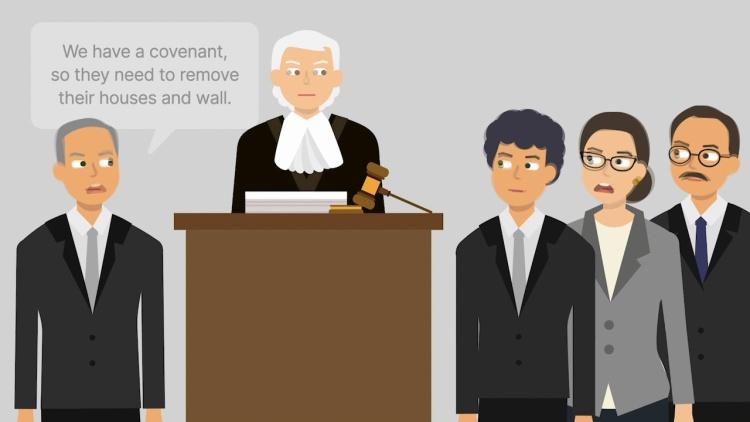London City Council v. Allen
England and Wales High Court of Justice, King's Bench Division
Ann.Cas.1916C 932 (1914)

- Written by Richard Lavigne, JD
Facts
Morris Allen owned land in London and entered into an agreement with the London City Council (plaintiff) that he would reserve two parcels for public road construction and would not erect any buildings upon those two parcels. Allen’s wife (defendant) built three houses on the reserved lots. The City Council issued an order demanding that the houses be torn down. The City Council turned to the trial court to enforce its order. Mrs. Allen asserted that she was not bound by the terms of the covenant because the city did not own any land that would be benefited by the conditions of the covenant. In the alternative, Mrs. Allen asserted that she was not bound by the covenant because she had no notice of the covenant at the time she acquired title. The trial court concluded that Mrs. Allen had failed to prove that she had no notice of the covenant. The trial court also concluded that the City Council’s interest in the construction of streets for the public benefit sufficed to make the original covenant run with the land, even though the city did not actually hold title to any land that would benefit from the terms of the covenant. Mrs. Allen appealed.
Rule of Law
Issue
Holding and Reasoning (Scrutton, J.)
What to do next…
Here's why 907,000 law students have relied on our case briefs:
- Written by law professors and practitioners, not other law students. 47,100 briefs, keyed to 996 casebooks. Top-notch customer support.
- The right amount of information, includes the facts, issues, rule of law, holding and reasoning, and any concurrences and dissents.
- Access in your classes, works on your mobile and tablet. Massive library of related video lessons and high quality multiple-choice questions.
- Easy to use, uniform format for every case brief. Written in plain English, not in legalese. Our briefs summarize and simplify; they don’t just repeat the court’s language.





